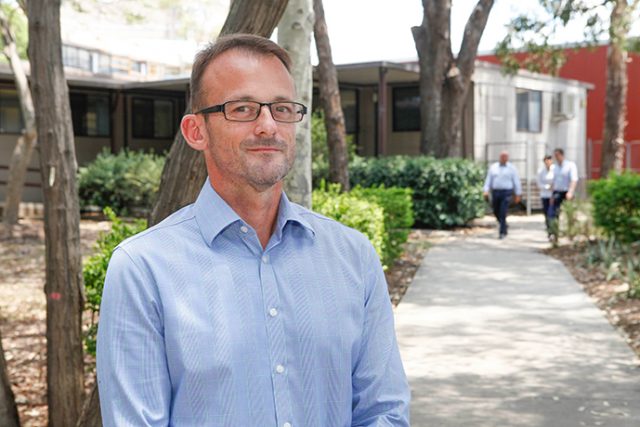Summer’s high temperatures have seen pool use soaring and with it an increase in cases of cryptosporidiosis, warns Associate Professor Brad Forssman, Director of Public Health at Nepean Blue Mountains Local Health District (NBMLHD).
Commonly known as ‘crypto’, 20 cases have been recorded in the local area so far this year compared with six recorded cases for the same period in 2016.
Crypto is a parasitic infection that causes watery diarrhoea and stomach cramps. Symptoms can also include fever, nausea and vomiting.
Crypto is present in faeces matter of infected humans and transmission can occur through person-to-person contact – particularly in families and among small children, in swimming pools with contaminated water or, less commonly, via drinking contaminated water.
Associate Professor Forssman said recent extreme high temperatures may account for a current spike in cases around the state.
“The recent hot weather has seen more people swimming in pools or visiting splash parks to cool down. Crypto can get into the pool water when people are swimming and once infected, a person can pass the disease to others for up to two weeks after they recover,” said Associate Professor Forssman.
“If you or a family member has diarrhoea, don’t go in a swimming pool until two weeks after the diarrhoea stops. This will protect other swimmers and help to stop the spread of infection.
“The bug can also pass from person to person if hands aren’t washed thoroughly after going to the toilet or changing nappies, so always wash your hands thoroughly.”
The following steps are recommended to help people avoid crypto’s unpleasant effects:
• Wash hands thoroughly with soap and water for 10 seconds after using the toilet, changing nappies, handling animals, and before preparing food or drinks.
• Avoid swallowing water when swimming
• If you or a family member has diarrhoea, don’t prepare food for others for at least 48 hours and don’t go in a swimming pool or share towels or linen for two weeks after the diarrhoea stops.


